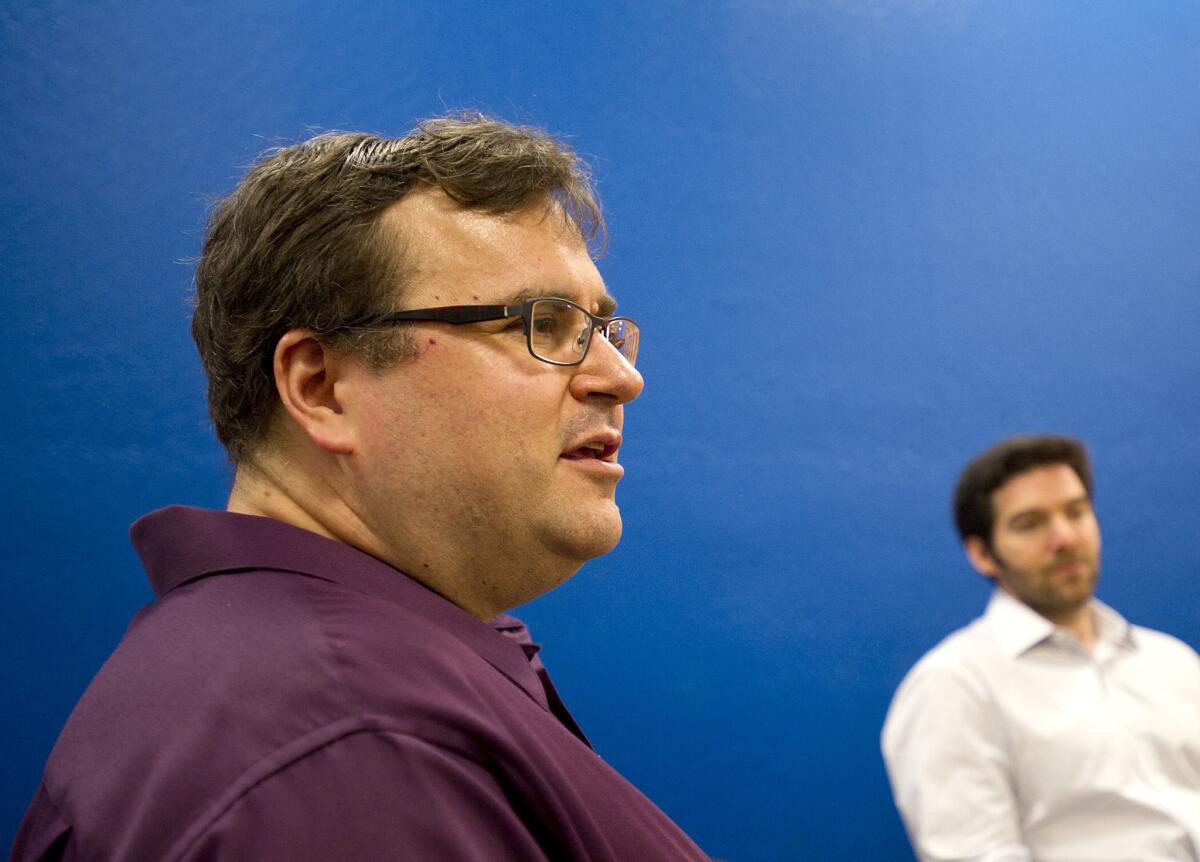A pitch for a new relationship between employers and employees

The economy is slowly adding jobs, as the most recent jobs report indicates, but they might not be the kind of jobs that will create strength in the economy.
After all, employees and employers used to have a lifetime contract in which employees, guaranteed a job for life, would do the best they could for their organization. No longer. The relationship between workers and bosses has changed fundamentally, as a series of L.A. Times stories pointed out, and that’s often worse for the worker.
But it doesn’t have to be that way. In an essay for the June issue of Harvard Business Review, Reid Hoffman, the co-founder of LinkedIn, and two other entrepreneurs pitch a new employee-employer contract that they say will work out better for both workers and their employers.
“Instead of developing a better compact, many -- probably most -- companies have tried to be more adaptable by minimizing the existing one,” they write. “The result is a winner-take-all economy that may strike top management as fair but generates widespread disillusionment among the rest of the workforce.”
Silicon Valley companies, they argue, have begin to form different types of employment contracts that could be used in other types of businesses. Many companies operate in rapidly changing fields not dissimilar from the world of technology, and an entrepreneurial mindset can help in managing workers.
Perhaps the most unusual part of their pitch is a two- or four-year employee contract that the authors call a “Tour of Duty.” Employers and their workers agree to work together for a set time period -- either two or four years -- and then decide after the time period is up if the match has been a good one. If it has, they can decide what the employee wants to do next within the company.
This has some obvious advantages for an employee. After all, it’s easy to run for four miles, and know how long you’re running for, than to just keep running until you drop. Wharton business school grads surveyed after some time in the working world were usually happiest if they had jobs with set end dates. The employee doesn’t have to worry every few weeks if layoffs are approaching, and can know if he or she does a good job, there’s an opportunity for promotion in a set period of time.
For an employer, this makes sense because employees will be trying to do good work, if they like their jobs, so they can get rehired. It also means that very talented employees won’t be jumping ship until their tour of duty is up, and that companies can try to make opportunities for those employees to stay.
“Lifelong employment and loyalty are simply not part of today’s world; pretending that they are decreases trust by forcing both sides to lie,” the authors write.
Employees should also be paid for meeting people outside the organization, and attending events where they can meet new people. Employees with wide networks of friends and contacts are usually more innovative than those without, the authors argue.
Employees in Silicon Valley are often more able to network and meet others than those in other states; California doesn’t have non-compete contracts that prevent people from creating strong networks outside their office.
Other ideas include asking employees for input and ideas, and creating a strong alumni network among former employees.
It may be hard to convince employers of some of these points; after all, the job market is still weak enough that they don’t have to bend over backwards to find willing employees. But it still might be in their advantage to. After all, as the authors point out, John Lasseter wanted to create a Pixar-like company within Disney, but Disney leaders weren’t interested in his ideas, and fired him. Disney would later pay $7.4 billion for Pixar. They could have saved themselves some money by just listening to their employee, and giving him something exciting to do.
ALSO:
As employers push efficiency, the daily grind wears down workers
Tracking workers’ every move leads to productivity -- and stress
Rejecting industry dogma, Costco backs calls to lift the minimum wage







